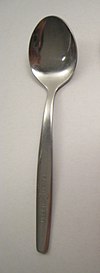colher
Jump to navigation
Jump to search
Old Galician-Portuguese[edit]
Etymology[edit]
Inherited from Latin colligere (“to collect, to gather”).
Pronunciation[edit]
Verb[edit]
colher
Conjugation[edit]
Conjugation of colher (regular)
Note: The verbs marked with an asterisk (*) were conjugated accordingly to the Old Galician-Portuguese conjugation system, given that there are no records of their usages.
| |||||||
| infinitive | colher | ||||||
|---|---|---|---|---|---|---|---|
| gerund | colhendo | ||||||
| past participle | singular | plural | |||||
| masculine | colhido, colheito | colhidos, colheitos | |||||
| feminine | colhida, colheita | colhidas, colheitas | |||||
| person | singular | plural | |||||
| first | second | third | first | second | third | ||
| indicative | eu | tu | el~ele ela vossa mercee |
nós nós outros nós outras |
vós vós outros vós outras |
eles elas | |
| present | colho | colhes | colhe | colhemos | colhedes | colhen | |
| imperfect | colhia | colhias | colhia | colhiamos | colhiades | colhian | |
| preterite | colhi | colheste | colheu | colhemos | colhestes | colheron | |
| pluperfect | colhera | colheras | colhera | colheramos | colherades | colheran | |
| future | colherei | colherás | colherá | colheremos | colheredes | colherán | |
| conditional | colheria | colherias | colheria | colheriamos | colheriades | colherian | |
| subjunctive | eu | tu | el~ele ela vossa mercee |
nós nós outros nós outras |
vós vós outros vós outras |
eles elas | |
| present | colha | colhas | colha | colhamos | colhades | colhan | |
| preterite | colhesse | colhesses | colhesse | colhêssemos | colhêssedes | colhessen | |
| future | colher | colheres | colher | colhermos | colherdes | colheren | |
| imperative | — | tu | vossa mercee | nós nós outros nós outras |
vós vós outros vós outras |
— | |
| affirmative | — | colhe | colha | colhamos | colhedes | — | |
| negative | — | colhas | colha | colhamos | colhades | — | |
| personal infinitive | eu | tu | el~ele ela vossa mercee |
nós nós outros nós outras |
vós vós outros vós outras |
eles elas | |
| colher | colheres | colher | colhermos | colherdes | colheren | ||
Related terms[edit]
Descendants[edit]
Further reading[edit]
Portuguese[edit]
Etymology 1[edit]

From Old Galician-Portuguese cullar, collar, from Latin cochleārem (“spoon”). The Old Portuguese word was influenced by Old French cuiller (French cuiller / cuillère), from the same Latin root. Cognate with Galician culler, French cuillère, Spanish cuchara, Catalan cullera. Compare with caracol (“snail”).
Pronunciation[edit]
- Hyphenation: co‧lher
Noun[edit]
colher f (plural colheres)
- spoon (eating utensil)
Derived terms[edit]
Descendants[edit]
Etymology 2[edit]
Inherited from Old Galician-Portuguese colher, from Latin colligere (“to collect, to gather”). Compare also the borrowed doublets coligir and coligar. Cognate with Galician coller, Asturian coyer, and Spanish coger.
Pronunciation[edit]
- Hyphenation: co‧lher
Verb[edit]
colher (first-person singular present colho, first-person singular preterite colhi, past participle colhido)
Conjugation[edit]
Conjugation of colher (See Appendix:Portuguese verbs)
Related terms[edit]
Categories:
- Old Galician-Portuguese terms derived from Proto-Indo-European
- Old Galician-Portuguese terms derived from the Proto-Indo-European root *leǵ-
- Old Galician-Portuguese terms inherited from Latin
- Old Galician-Portuguese terms derived from Latin
- Old Galician-Portuguese terms with IPA pronunciation
- Rhymes:Old Galician-Portuguese/eɾ
- Rhymes:Old Galician-Portuguese/eɾ/2 syllables
- Old Galician-Portuguese lemmas
- Old Galician-Portuguese verbs
- Old Galician-Portuguese verbs ending in -er
- Portuguese terms inherited from Old Galician-Portuguese
- Portuguese terms derived from Old Galician-Portuguese
- Portuguese terms inherited from Latin
- Portuguese terms derived from Latin
- Portuguese terms derived from Old French
- Portuguese 2-syllable words
- Portuguese terms with IPA pronunciation
- Portuguese 3-syllable words
- Portuguese lemmas
- Portuguese nouns
- Portuguese countable nouns
- Portuguese feminine nouns
- Portuguese terms derived from Proto-Indo-European
- Portuguese terms derived from the Proto-Indo-European root *leǵ-
- Portuguese doublets
- Portuguese verbs
- Portuguese verbs ending in -er
- pt:Cutlery